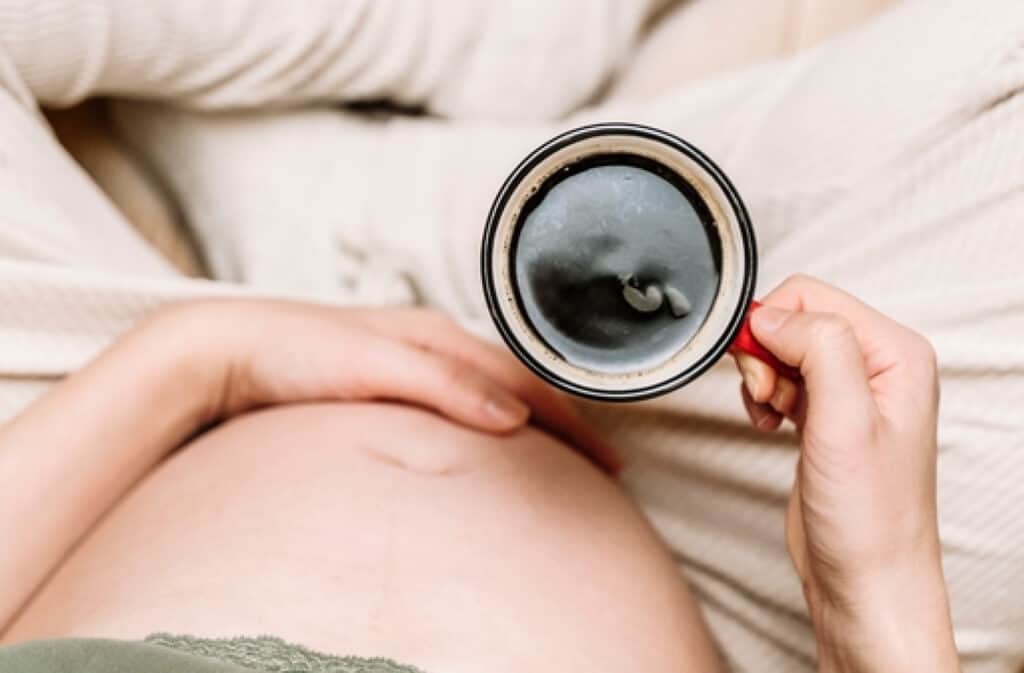Femia > Health Library > Your cycle > Sex > Bleeding during sex: Causes, what’s normal, and when to seek help
Bleeding during sex: Causes, what’s normal, and when to seek help

- Updated Feb 10, 2025
- Published
CRAFTED BY HUMAN
Crafted by human At Femia, we provide accurate and up-to-date information at every stage of your journey, from trying to conceive, pregnancy and postnatal support. All content is created by a real person based on in-depth research and own professional experience. Femia ensures that you will receive expert advice, strict accuracy and a personalized approach from our authors/medical experts. Learn more about our editorial policy.
FACT CHECKED
Fact checked At Femia Health, we maintain the highest standards of editorial excellence in delivering content focused on helping you conceive, guiding you through pregnancy, and supporting you postpartum. Explore our content review principles to learn how we ensure the accuracy and quality of our health and lifestyle tips for every stage of your journey.
Light bleeding during sex is a common complaint and usually nothing to worry about. However, if it keeps happening, if you can’t figure out why, or if other symptoms—such as pain, burning, or irritation— accompany the bleeding, it’s time to check in with your doctor. An underlying health issue, such as an infection, hormonal changes, or cervical polyps, may need treatment to prevent further bleeding.
Many women experience bleeding during or after sex at some point. Though it can be a concerning sight, it’s generally harmless and nothing to worry about. If it keeps happening, however, or is accompanied by other symptoms, it’s time to visit your doctor.
You may not notice you’re bleeding during sex. You’re most likely to see the bleeding after sex when you visit the bathroom. It’s often referred to as post-coital bleeding, though it can start during sex. Various potential causes include friction, infection, and implantation bleeding. It’s always worth getting checked out by your doctor if you’re worried about bleeding after sex.
Femia helps millions of women understand their bodies and sexual health
What is post-coital bleeding?
Post-coital bleeding is the name given to bleeding while having sex but not your period. Your period turning up at an inopportune moment wouldn’t count as post-coital bleeding. Any non-menstrual bleeding during or after sex counts as post-coital bleeding, whether it’s a few drops of blood during sex or a heavier bleed afterward.
👉Find out more: Why do I feel sick after sex? Understanding post-sex nausea in women
How long does bleeding after sex last?
Bleeding after sex is usually short-lived. You may see a smear of blood when you wipe the next time you visit the bathroom or notice a few drops of blood on the bedsheets after sex. This will usually be the extent of the bleeding, though, in some instances, it can last longer.
If you notice heavy bleeding after sex, you should speak to your doctor as soon as possible. Your doctor will want to determine the cause of the bleeding and suggest a treatment plan to prevent it from happening again.
Is bleeding during sex normal?
Many women will experience bleeding after sex at some point. Painless, light bleeding as a one-off is generally nothing to worry about, though it’s worth mentioning to your doctor. However, if the bleeding is recurrent or accompanied by other symptoms, you should visit your doctor for advice.
You may not notice bleeding during sex and are more likely to spot it during your next trip to the bathroom, leading many women to describe it as bleeding after sex. A 2014 article published in Obstetrics and Gynaecology International found that up to 9% of women experience bleeding after sex.
Bleeding during sex, no pain: What does it mean?
Generally, the lack of pain is considered a good sign. This could mean your bleeding is due to milder causes, such as vaginal dryness or hormonal changes. However, it doesn’t completely rule out other causes. Bleeding during sex with no pain could be caused by polyps or cervical issues.
If you’ve noticed blood on the toilet roll after sex, you’re probably wondering, “Why do I bleed during sex?” There are several potential causes of bleeding, including:
Vaginal dryness
The most common answer to this question is vaginal dryness. The vagina self-lubricates during arousal. Without sufficient lubrication, the friction of sex can cause tiny tears in the vaginal wall. Vaginal dryness happens if you aren’t adequately aroused before having sex.
Dryness is a common symptom of perimenopause, menopause, and post-menopause. Hormonal changes during your cycle and certain medications can also add to vaginal dryness. You may notice burning after sex if vaginal dryness is the cause of your bleeding.
Cervical or vaginal irritation
The vagina is a sensitive organ and should be treated accordingly. Rough sex can cause friction, which can irritate the vagina and cause bleeding after sex. You can even end up with a bruised cervix after sex if you’re not careful. If you notice discomfort during deep thrusts, it could be cervical irritation causing your bleeding after sex. Try different positions where you can control the depth and angle of penetration.
Hormonal fluctuations
Hormones get the blame for everything (sorry, hormones), but this could be the cause of your bleeding during sex. Hormonal birth control, especially if you’ve only recently started using it, can cause spotting after sex. The changing hormones of perimenopause can also lead to bleeding,i because lower estrogen levels mean your vagina is less elastic and more prone to tearing.
Potential signs of hormonal imbalance include:
- Fatigue
- Skin problems
- Hair loss
- Excess facial or body hair
- Low libido
- Weight changes
- Constipation or diarrhea
- Unusually slow or rapid heartbeat
- Numbness or tingling in your hands
- Depression or anxiety
Implantation bleeding
If you’re trying for a baby, light spotting after sex could be a good sign. An implantation bleed can happen when the fertilized egg embeds in the lining of the uterus. This usually shows up as light spotting around the time of implantation (6 to 10 days after conception).
Infections
An infection can increase your risk of inflammation, irritation, and bleeding. Possible infections include bacterial vaginosis, ureaplasma, yeast infections, or sexually transmitted infections (STIs), including trichomonosis, chlamydia, and gonorrhea.
You may notice other symptoms, including:
- An unusual discharge (this may smell or look different from your usual vaginal discharge)
- An unpleasant smell
- Irritation or pain during sex
- Bleeding between periods
- Burning when you pee
- Cramps after sex
If you think you may have an infection, it’s essential to get checked out as soon as possible. Your doctor will be able to prescribe medication to treat the infection.
Why am I bleeding during sex? Uncommon or serious causes
While most cases of bleeding during sex are nothing to worry about, it can be a sign that you require medical attention. If you’re wondering, “Why do I bleed every time I have sex?” It’s time to visit your doctor. Recurrent bleeding can be a sign that something isn’t right. More serious causes of bleeding after sex include:
Cervical or endometrial polyps
A polyp is a small growth on the cervix or lining of the uterus. Polyps can cause irregular vaginal bleeding. If infected, they can cause a pus-like discharge. Polyps are usually asymptomatic; however, removal is recommended.
Uterine fibroids
Uterine fibroids are a type of benign growth on or in your uterus. These may cause bleeding and pain during sex. Surgery is usually recommended to remove fibroids, though there is a risk they will grow back.
Cervicitis or cervical inflammation
Cervicitis is inflammation of the cervix. It can cause bleeding between periods, bleeding after sex, painful sex, and a pus-like discharge. Cervicitis is usually caused by an underlying infection, such as bacterial vaginosis or an STI. Treatment for cervicitis involves finding and treating the underlying infection.
Endometriosis or adenomyosis
Endometriosis and adenomyosis affect the endometrium (the lining of the uterus). You’ve probably heard of endometriosis, where cells similar to those found in the endometrium grow in other parts of the body. Adenomyosis is when endometrial tissue grows in the muscular lining of the uterus. Both endometriosis and adenomyosis can cause bleeding after sex.
Cancer of the cervix, uterus or vagina
Vaginal bleeding is a common first symptom of cervical cancer and one of the most common signs of vaginal cancer. Abnormal vaginal bleeding is also a symptom of uterine cancer. If the bleeding happens more than once, you should speak to your doctor about this symptom. Though it’s most likely not cancer, you should get it checked out early, just in case.
👉Find out more: Is it safe to have sex while on your period? Everything you need to know
When to seek medical advice
Seeing blood after sex can be worrying, and you’re likely wondering, “What does it mean when you bleed during sex?” The best person to answer that question is your OBGYN.
If you experience bleeding after sex as a one-off, it’s still worth mentioning to your OBGYN at your next appointment. However, there are instances when you’ll need to tell your doctor as soon as possible. For example, you should make an appointment to see your OBGYN if:
- the bleeding happens every time you have sex;
- the bleeding has happened more than once;
- the bleeding is accompanied by pain, unusual discharge, or other symptoms;
- and/or you have a family history of reproductive health issues, such as cervical cancer or endometriosis.
Diagnosis: How doctors identify the cause of bleeding during sex
Your doctor will take a full medical history and ask questions about your symptoms. They may ask questions about your periods, birth control, and any related symptoms. Your doctor will carry out tests to determine the cause of your bleeding. These tests may include:
- A pregnancy test
- STI testing
- A blood test
- A pelvic exam
- An ultrasound exam
Using the test results and your medical history, your doctor will determine the cause of your symptoms.
Treatment options for bleeding during sex
Your treatment options depend on the cause of your bleeding during and after sex. Potential treatment options for post-coital bleeding include:
Lubrication
Lubrication and extended foreplay are recommended to prevent bleeding during sex caused by vaginal dryness. It’s essential to ensure proper lubrication before sex. Honest, open communication with your partner is vital here. Opt for a water-based lube where possible, as it’s easier to clean up. If you’re trying to conceive, check the bottle to ensure the lube is conception-friendly.
Hormone treatments
If your bleeding is caused by hormonal fluctuations or vaginal dryness, your doctor might recommend hormonal treatments. Hormone therapy is often offered to women as they approach the menopause to replenish their hormones and combat symptoms such as vaginal dryness.
Medications
Your doctor may prescribe medication to treat the cause of your bleeding after sex. Your doctor will prescribe antibiotics to treat any underlying infection, such as bacterial vaginosis or chlamydia, or antifungals in the case of a yeast infection.
Surgery
Your doctor may recommend surgery to remove polyps. Surgery is also used to treat severe cases of endometriosis. Surgery is a last-resort treatment option and will only be recommended if your doctor thinks the benefits outweigh the risks.
Tips for reducing bleeding during sex
Bleeding during sex isn’t fun and may make you feel anxious, which can ruin the mood. Try the following tips to prevent bleeding during sex:
- Focus on foreplay. If a lack of arousal caused the bleeding during sex, it’s time to kick your foreplay up a gear. Don’t be afraid to tell your partner exactly what you want in the bedroom. If the things they’re doing aren’t working, be honest. Show them what you like.
- Use adequete lubrication. You can use lube to improve lubrication during sex. This can help if your vaginal dryness is caused by hormonal changes or medication. Look for a water-based lubricant that will wash away easily after use.
- Pay attention to how you feel during sex. Sometimes, bleeding during sex can be caused by aggressive sex or uncomfortable positions. If you notice discomfort during sex, switch positions. If you think aggressive sex is to blame, tell your partner to be more gentle.
- Visit the doctor. The changing hormone levels of perimenopause and menopause could be causing vaginal dryness. Speak to your doctor about treatment options; they may recommend hormone replacement therapy to prevent dryness. Your doctor will diagnose the underlying cause and treat the issue to prevent future bleeds.
Femia helps millions of women understand their bodies and sexual health
Questions from the Femia community
Can hormonal birth control cause bleeding during sex?
Yes, hormonal birth control causes hormonal fluctuations, which can lead to spotting or light bleeding. This is most likely if you have only recently started using the hormonal contraceptive.
Is it safe to keep having sex if I bleed every time?
If you are bleeding every time you have sex, you need to consult your healthcare provider. Recurrent postcoital bleeding can be a sign of an underlying issue, so it’s essential to get a timely diagnosis.
Can stress or anxiety cause bleeding during sex?
Feeling stressed or anxious will not directly cause bleeding during sex; however, the two issues could be connected. If the stress or anxiety is preventing arousal and decreased lubrication, it could cause vaginal dryness, leading to bleeding after sex.
Could bleeding during sex indicate pregnancy?
Some women experience spotting or light bleeding during the early weeks of pregnancy. If you think you might be pregnant, take a home pregnancy test, or visit your healthcare provider for confirmation.
The bottom line
While it might not be a fun sight, occasional spotting after sex is usually nothing to worry about. However, if the bleeding is persistent, frequent, or accompanied by other symptoms, such as unusual discharge or pain, you must contact your OBGYN for advice.
Bleeding during sex is most commonly caused by vaginal dryness. Without proper lubrication, friction can irritate the walls of the vagina and cause bleeding. You can avoid this by ensuring adequate arousal before penetration (more foreplay, please!) and using lube.
In some cases, it may be caused by underlying health conditions such as yeast infections, STIs, and polyps. Your doctor will determine the underlying cause of the bleeding and recommend a course of treatment. The sooner you get checked out, the sooner you can get back to a worry-free sex life.
References
- Alkilani YG, Apodaca-Ramos I. Cervical Polyps. [Updated 2023 Sep 4]. In: StatPearls [Internet]. Treasure Island (FL): StatPearls Publishing; 2024 Jan-. Available from: https://www.ncbi.nlm.nih.gov/books/NBK562185/.
- Mohammad, Hajer et al. “The Incidence of Cervical Intraepithelial Neoplasia or Cervical Cancer in Women Referred With Postcoital Bleeding.” Journal of lower genital tract disease vol. 28,3 (2024): 210-216. doi:10.1097/LGT.0000000000000808 https://pubmed.ncbi.nlm.nih.gov/38661331/.
- Rosenthal, A N et al. “The frequency of significant pathology in women attending a general gynaecological service for postcoital bleeding.” BJOG : an international journal of obstetrics and gynaecology vol. 108,1 (2001): 103-6. doi:10.1111/j.1471-0528.2001.00008.x https://pubmed.ncbi.nlm.nih.gov/11212982/.
- Tarney, Christopher M., Han, Jasmine, Postcoital Bleeding: A Review on Etiology, Diagnosis, and Management, Obstetrics and Gynecology International, 2014, 192087, 8 pages, 2014. https://doi.org/10.1155/2014/192087.
- Tropschuh, Katharina, and Vanadin Seifert-Klauss. “Was gibt es Neues zu Peri- und Postmenopause?” [What is new on peri- and postmenopause?]. Deutsche medizinische Wochenschrift (1946) vol. 149,22 (2024): 1317-1323. doi:10.1055/a-2165-5935 https://pubmed.ncbi.nlm.nih.gov/39437822/.

Want to achieve a better orgasm? Explore our best techniques and methods to give a try solo and with your partner.

Is period sex bad for you? No, not at all. Does having sex on your period help with cramps? Yes, it might even come with some benefits like pain relief and mood boost.

If you’re wondering, ‘Can you drink coffee while pregnant?’ you’ll be relieved to hear that it’s considered safe to consume moderate amounts of caffeine while pregnant.

